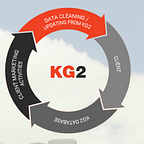Impacts of Big Data Agribusiness
Big Data Agribusiness is a imperative in improving precision, accuracy, and efficiency. AgTech has come a long way, and today, it’s a sought-after sector with numerous applications. However, the largest roadblock that keeps the industry from growing are climatic and economic factors. Considering the assorted factors involved in agriculture, it is quite challenging for companies to develop solutions that are compatible.
Agriculture is one of the earliest industries that applied Big Data Agribusiness to increase efficiency. Big Data Agribusiness has quickly become amongst the foremost influential for agricultural industries within the world today. In fact, the knowledge generated from big data has the potential to remodel the long run of diverse sectors. The global value of the farm business is estimated at 138.9 billion USD in 2020. However, it is expected to grow to 229.4 billion USD by 2025.
What is Big Data Agribusiness?
Big Data Agribusiness is essentially the results of mining, analysing, and aggregating information from a large array of sources. Farmers can gain access to big data so as to capture and understand their past experiences and apply them to their next planting season.
Big Data Agribusiness is one of the foremost disruptive technologies within the world today. Many industries are now reaping its benefits, bringing serious changes in how they operate to boost efficiency and profitability. Agriculture has always been a crucial part of our lives, and we cannot ignore its pivotal role today. With a gradual increase of the global population, there has been a related upsurge within the world food shortage. Making matters worse is the climate instability that comes about because of changing weather patterns. the requirement for information is undeniable; Big Data Agribusiness can therefore become an important tool within the agricultural industry.
With the recent advances in technology, agriculture firms can utilise Big Data Agribusiness and therefore the internet of things (IoT). Cloud computing allows organisations to store their data associated with farming in affiliated locations; analytics firms can study the collected data from different farmers. IoT devices also offer data collection and processing capabilities to ensure better conditions for farming firms.
Agriculture is undoubtedly a highly important sector and has been undergoing lots of changes within the previous couple of years. This industry has suffered from various problems within the past, but fortunately, as a results of modern farming technologies and Big Data Agribusiness most of those issues are addressed by embracing information technology and cloud computing. These changing technologies are now also addressing other vital challenges that are impacting agriculture worldwide: water scarcity, a growing population, and heating, and every one of this results in the necessity for brand new methods that are better ready to predict changes in nature and anticipate anomalies.
There are several data analytics tools that may be easily applied to simplify the method and generate some useful insights that may then be employed by farmers. As mentioned before, many IoT device manufacturers collect a large amount of information, and this information may be used to improve agricultural practices, made possible by Big Data Agribusiness. As an example, let’s consider sensors installed in tractors that collects information about what proportion and time a farmer spends on his field and the way many acres he has managed to hide during these hours. This information can reveal the areas that require improvement or what parts of the agricultural procedure are being neglected entirely by farmers.
Farmers today need to influence various challenges coming from a changing agricultural landscape. they need to use different tools and techniques including Big Data Agribusiness if they’re to achieve success and higher yields compared to their counterparts. Data analysis and modelling is amongst the high-value systems that may assist farmers in taking charge of their farms. This will help them solve specific issues on their farms and improve productivity. The efficiency of the farming activities could also be determined by understanding the quantity of nutrients passed out from the farm, the quantity of quality products produced, the customer base, etc. Unless you create your living within the agriculture sector, the importance of its operations isn’t apparent. Agriculture deserves a due glance due to how it shapes our lives and benefits us in ways we might not even know which is made possible by adopting technical changes by the engagement of Big Data Agribusiness in the fields of agriculture.
